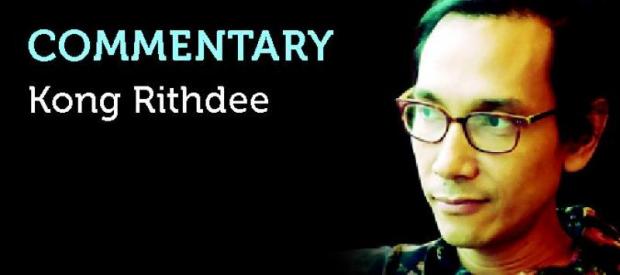
Bob told me many stories from a time when I hadn't even been born: During the Oct 14, 1973 student uprising, the authorities suspected he was a spy. When the Oct 6, 1976 massacre took place and the stench of blood was still fresh at Thammasat University, he surveyed the wreckage and bemoaned the state of the country he had adopted as his new home. Some evenings he reminisced on how he had lived through several dictators and prime ministers, hijacked or elected, overthrown or incapacitated -- he talked about Richard Nixon, Thanom Kittikachorn, Tanin Kraivixien, Thaksin Shinawatra, Prayut Chan-o-cha, etc. It didn't matter what happened, he'd say, as long as he could prowl produce markets in search of the perfect durian -- the caramelised Holy Grail of the fruit he adored above all else, the fruit that, as he'd say, made him "slobber like a mastiff".
Last Saturday we lost Robert Bruce Halliday, or Bob, a Bangkok Post columnist, a pitch-perfect pianist in his youth, a polyglot who spoke at least five languages (including Russian, thus the spy thing during those Cold War years), a celebrated gourmand of Bangkok street food from the days when street food wasn't even celebrated, a rapacious reader of Joyce and JK Rowling and everything in between (he finished every new Harry Potter faster than most young fans), an admirer of 12-tone music as well as glorious Bach, and of course, above all, a giver of books, CDs, advice, a generous, gallant soul who touched so many lives during his 50-year stay in Thailand.
The Bangkok Post lost its sharpest intellectual, translator and journalist when Bob stopped writing about food, classical music, film and gadgets a few years ago (yes, he reviewed phones and laptops too). When he passed away -- at 74, after nearly two months in a hospital following a severe case of pneumonia -- a light went out in the hearts of his friends. No more late-night conversation, no more movie screenings in his living room. No more bantering on politics around the dinner table. No more long, serene, coffee-fuelled mornings in the garden of delight that was his home.
We've lost not just a great friend and a great journalist. In a way, Bob's passing felt like an end of an era. Because he lived in Thailand longer than many Thais, embracing his dual role as an insider/outsider and witnessing key events in our modern history, he could see Thailand as it is: a place capable of bloodbath and cruelty, a weird, unfathomable, durian-infested country, neither heaven nor hell, but a real, living, breathing place, hard-boiled but worth treasuring. US-born Bob said many times Bangkok was where he belonged -- not Cresskill, New Jersey -- and his lifelong quest was to become a Thai citizen (he didn't get it). A mentor to many, Bob's greatest lesson to me is simple: Thailand sucks, but it's home.
Bob arrived in Thailand in the mid-1960s during the Vietnam War to work in the refugee camps in the Northeast. When he settled in Bangkok, his first teacher of the Thai language, he told me, was a girl living near the house he rented by the Chao Phraya. He would go on to read, write and speak Thai so formally and colloquially well that he could blast expletives at tuk tuk drivers who tried to overcharge him; he also translated documents for ad agencies as well as government offices.
He joined Bangkok World, and then the Bangkok Post, where he wrote about classical music, food, literature, gadgets and cinema under jokey pen names: Ung-Aang Talay (Sea Toad), Plalai Faifa (Electric Eel) and Jingjo Dam Na Buriram (Black Kangaroo of Buriram). Those are disarming tricks, because his writing on high-culture was some of the best this paper ever printed, while his street food "investigations" from the 1980s up to 2010s were lively, funny, salivating, with genuine culinary knowledge, and the column became a passionate celebration of local vendors and their dishes.
In the past several months, Bob complained about the dark path along which the world is heading: Donald Trump, Islamic State, messy Thai politics. Talking about the state Thailand was in made him visibly sad, and this from a person who had seen the 1970s. But Bob, like Voltaire, found refuge in "tending one's garden": He knew how art could fulfill the imperfection of life, how music uplifts the soul, how literature can redeem a nation, and how food -- durians leading the charge -- can ward off the cavalry of nightmares that is the 21st century. Bob's soul is at peace, but his light, like poetry, like love, will continue to shine.
Robert Halliday's funeral services are being held at Wat Thepleela, Ramkamhaeng 39, until tomorrow. The cremation will be on Monday.
Kong Rithdee is Life Editor, Bangkok Post.

